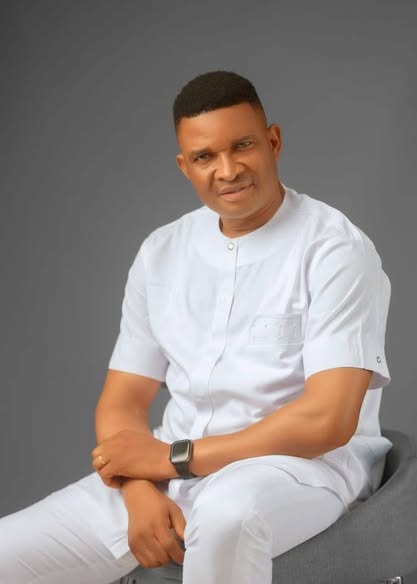Paul Nwokocha, a prominent gospel singer, has publicly addressed the recent breakdown of his second marriage, sparking a heated debate across social media platforms. In a candid video posted on his official YouTube channel, Nwokocha unequivocally defended his decision to end the two-year union, attributing it to his estranged wife, Goodness Nwokocha’s, alleged “abominable acts.” He explicitly accused her of sharing explicit photos and videos with other men, a betrayal he deemed irreconcilable with his values and expectations of marriage. Nwokocha’s forceful declaration, “I married a wife, not a whore,” underscores his unwavering stance on marital fidelity and his refusal to tolerate such perceived transgressions. This public airing of deeply personal grievances has divided public opinion, with some commending his moral fortitude while others criticize his decision to expose private matters to public scrutiny.
The controversy surrounding Nwokocha’s second marital failure highlights a recurring pattern in his personal life. Just months before marrying Goodness in September 2023, he separated from his first wife, Alice Nwokocha, citing “maltreatment” and her alleged refusal to perform domestic duties such as serving him food. This rapid succession of failed marriages, coupled with his unconventional interpretation of marital vows as “for better, for better” rather than the traditional “for better, for worse,” has further fueled the public discourse surrounding his personal life and choices. The return of the bride price by Goodness’s family, a culturally significant act signifying the formal dissolution of the marriage, confirms the finality of the separation and marks another turbulent chapter in Nwokocha’s marital history.
While Nwokocha presents a narrative of betrayal and moral indignation, reports from sources close to the situation paint a more nuanced picture. Anonymous sources allege that Goodness experienced mistreatment within the marriage, being relegated to the role of a housemaid rather than a respected partner. These accounts suggest a potential power imbalance and a lack of mutual respect within the relationship, contradicting Nwokocha’s portrayal of himself as the wronged party. Furthermore, it has been revealed that Goodness had no prior romantic involvement with Nwokocha before their marriage, having been persuaded to relocate from Lagos at the behest of his uncles without conducting thorough background checks. This seemingly hasty and arranged nature of their union raises questions about the foundation upon which the marriage was built and the potential for underlying issues that contributed to its eventual demise.
The unfolding drama of Nwokocha’s marital woes has become a focal point of online discussion, with opinions sharply divided. Supporters applaud his firm stance on morality and his refusal to compromise his values in the face of alleged infidelity. They argue that his public declaration serves as a powerful message against betrayal and a reaffirmation of the sanctity of marriage. Conversely, critics question the appropriateness of airing such private and sensitive matters in the public sphere. They argue that such public pronouncements, particularly those involving accusations of such a serious nature, can cause irreparable damage to reputations and further complicate an already delicate situation. Moreover, they question the wisdom of utilizing social media as a platform for resolving personal conflicts, suggesting that such actions can escalate tensions and hinder the possibility of amicable resolution.
The contrasting narratives presented by Nwokocha and anonymous sources close to Goodness underscore the complexity of the situation and the difficulty of ascertaining the full truth. Nwokocha’s public pronouncements, while assertive and seemingly justified from his perspective, lack the corroboration of independent evidence. The allegations of mistreatment from anonymous sources, while potentially credible, remain unverified and could be influenced by personal biases or agendas. This discrepancy in accounts highlights the importance of cautious interpretation and the need to avoid rushing to judgment based solely on one-sided narratives. The situation underscores the challenges of navigating the complexities of interpersonal relationships, particularly within the context of marriage, where personal values, expectations, and individual experiences can significantly shape perceptions of events.
Ultimately, the public airing of Nwokocha’s marital problems raises broader questions about the intersection of private lives and public personas, particularly in the age of social media. While individuals have the right to express themselves and share their experiences, the implications of such public pronouncements can be far-reaching and potentially damaging. The case of Paul Nwokocha serves as a cautionary tale about the potential pitfalls of utilizing social media as a platform for resolving personal conflicts and the importance of considering the broader consequences of sharing intimate details of one’s life with a wider audience. It also underscores the need for empathy and understanding when engaging with such sensitive topics, recognizing that there are often multiple perspectives and untold stories that contribute to the complexities of human relationships.


